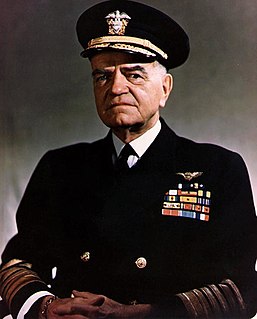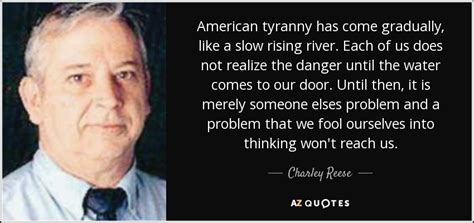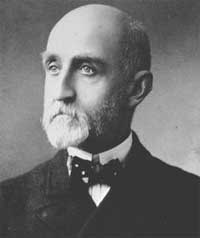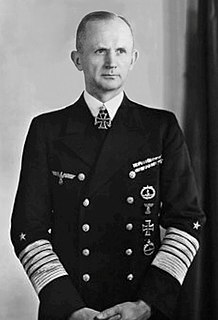A Quote by Horatio Nelson
The business of the English commander-in-chief being first to bring an enemy fleet to battle on the most advantageous terms to himself, (I mean that of laying his ships close on board the enemy, as expeditiously as possible); and secondly to continue them there until the business is decided.
Related Quotes
The enemy of the black is not the white. The enemy of capitalist is not communist, the enemy of homosexual is not heterosexual, the enemy of Jew is not Arab, the enemy of youth is not the old, the enemy of hip is not redneck, the enemy of Chicano is not gringo and the enemy of women is not men. We all have the same enemy. The enemy is the tyranny of the dull mind. The enemy is every expert who practices technocratic manipulation, the enemy is every proponent of standardization and the enemy is every victim who is so dull and lazy and weak as to allow himself to be manipulated and standardized.
[Admiral Nelson's counsel] guided me time and again. On the eve of the critical battle of Santa Cruz, in which the Japanese ships outnumbered ours more than two to one, I sent my task force commanders this dispatch: ATTACK REPEAT ATTACK. They did attack, heroically, and when the battle was done, the enemy turned away. All problems, personal, national, or combat, become smaller if you don't dodge them, but confront them. Touch a thistle timidly, and it pricks you; grasp it boldly, and its spines crumble. Carry the battle to the enemy! Lay your ship alongside his!
If Americans wish to preserve a country they will recognize, then the first step is to recognize the enemy. Public education is the enemy. The entertainment industry is the enemy. The corporate culture is the enemy. The advertising industry is the enemy. And most of the politicians in both parties are the enemy. An enemy is defined as anybody, or any organization, which is attacking the traditional beliefs of Americans.
The surer of himself an admiral is, the finer the tactical development of his fleet, the better his captains, the more reluctant must he necessarily be to enter into a melee with equal forces, in which all these advantages will be thrown away, chance reign supreme, and his fleet be place on terms of equality with an assemblage of ships which have never before acted together.
How much reverence has a noble man for his enemies!--and such reverence is a bridge to love.--For he desires his enemy for himself, as his mark of distinction; he can endure no other enemy than one in whom there is nothing to despise and very much to honor! In contrast to this, picture "the enemy" as the man of ressentiment conceives him--and here precisely is his deed, his creation: he has conceived "the evil enemy," "the Evil One," and this in fact is his basic concept, from which he then evolves, as an afterthought and pendant, a "good one"--himself!
When the enemy's envoy's speak in humble terms, but continues his preparations, he will advance. When their language is deceptive but the enemy pretentiously advances, he will retreat. When the envoys speak in apologetic terms, he wishes a respite. When without a previous understanding the enemy asks for a truce, he is plotting. When the enemy sees an advantage but does not advance to seize it, he is fatigued.
Whoever is the first in the field and awaits the coming of the enemy will be fresh for the fight... Therefore the clever combatant imposes his will on the enemy... By holding out advantages to him, he can cause the enemy to approach of his own accord; or by inflicting damage, he can make it impossible for the enemy to draw near.
No attempt of any kind must be made at rescuing members of ships sunk, and this includes picking up persons in the water and putting them in lifeboats, righting capsized lifeboats, and handing over food and water. Rescue runs counter to the most primitive demands of warfare for the destruction of enemy ships and crews. Be hard, remember that the enemy has no regard for women and children when he bombs German cities.
Al Gore’s not going to be rounding up Jews and exterminating them. It is the same tactic, however. You got to have an enemy to fight. And when you have an enemy to fight, then you can unite the entire world behind you, and you seize power. That was Hitler’s plan. His enemy: the Jew. Al Gore’s enemy, the U.N.’s enemy: global warming.
The good fighters of old first put themselves beyond the possibility of defeat, and then waited for an opportunity of defeating the enemy. To secure ourselves against defeat lies in our own hands, but the opportunity of defeating the enemy is provided by the enemy himself. Thus the good fighter is able to secure himself against defeat, but cannot make certain of defeating the enemy.































